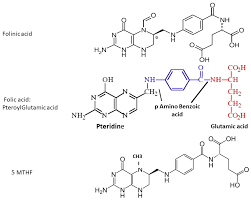Understanding Folinic Acid: Importance and Applications

Introduction
Folinic acid, also known as leucovorin, is a form of vitamin B that plays a critical role in various medical treatments, particularly in the fields of oncology and hematology. Its importance in supporting the body’s cellular processes makes it a key component in therapeutic regimens, especially for patients undergoing chemotherapy or those with certain types of anemia. As the medical community becomes increasingly aware of its benefits, the relevance of folinic acid continues to grow.
Key Benefits and Uses
Folinic acid is utilized primarily as an adjunct treatment in chemotherapy regimens, particularly for cancers such as colorectal cancer. It helps to mitigate the harmful side effects of certain chemotherapeutic agents, providing a protective effect on healthy cells while allowing the primary drugs to target cancerous tissues effectively.
One of the most well-known applications of folinic acid is in combination with the drug methotrexate. Methotrexate, used to treat various autoimmune diseases and cancers, can induce folate deficiency and lead to serious toxicities. Folinic acid is employed to rescue normal cells from this toxicity, enabling higher doses of methotrexate to be used without compromising patient safety.
In addition to its role in oncology, folinic acid is beneficial in treating megaloblastic anemia—a condition caused by a deficiency of vitamin B12 or folate. Supplementation with folinic acid can help restore adequate folate levels, allowing for improved red blood cell production and better oxygenation of tissues.
Emerging Research
Recent studies have indicated potential advantages of folinic acid in neuroprotective therapies and its role in improving cognitive functions. Research is ongoing to explore how folinic acid supplementation may benefit brain health, especially among individuals with neurodegenerative diseases.
Conclusion
Folinic acid serves as a vital component in various medical treatments, particularly for cancer patients and those suffering from specific anemias. As research continues to unveil its therapeutic potential, the applications of folinic acid may expand further within medical fields. For patients and healthcare providers, understanding the significance of folinic acid is crucial in optimizing treatment outcomes and managing side effects, reinforcing its role as an indispensable asset in modern medicine.









